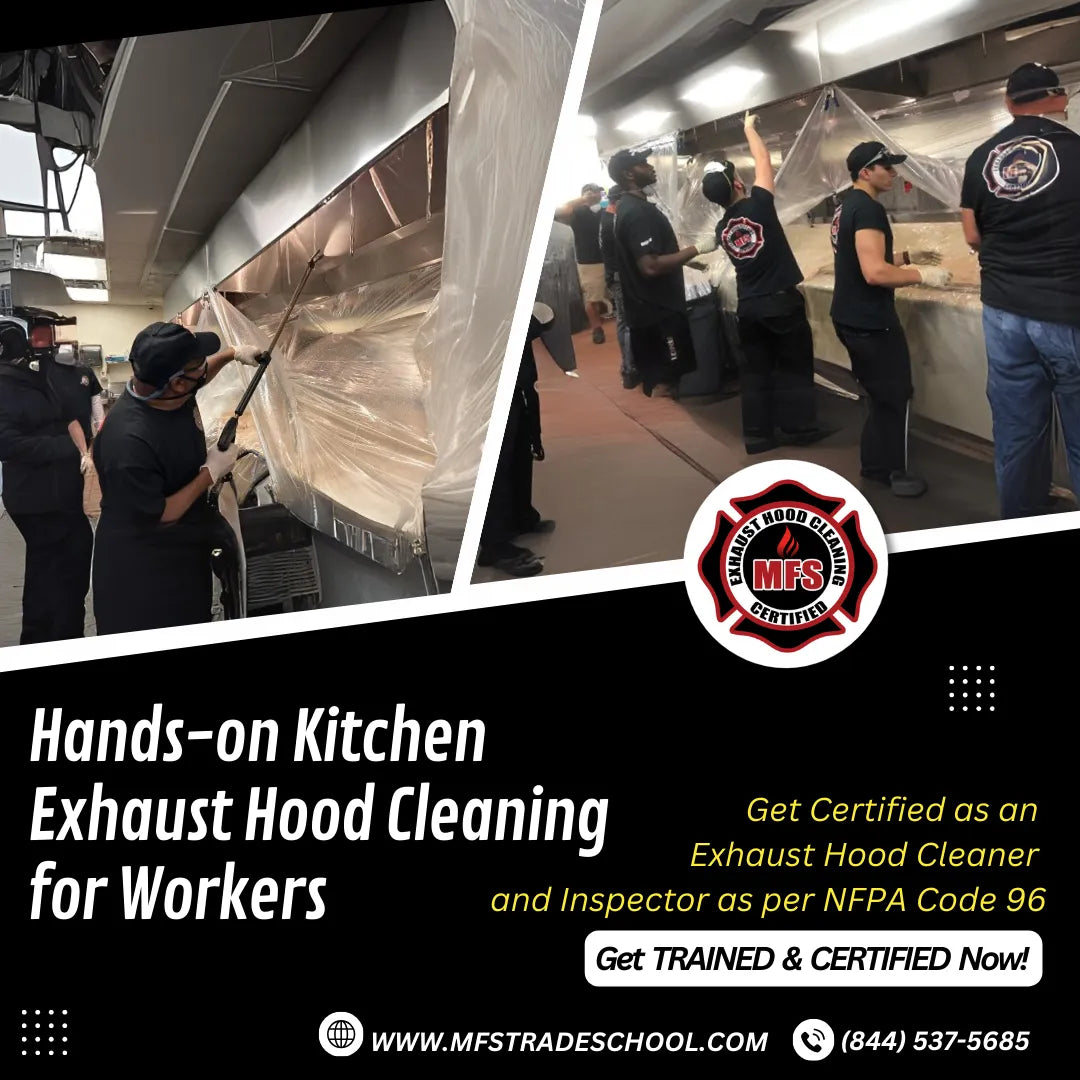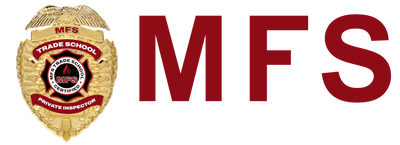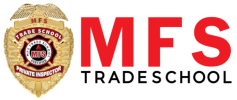
Hands On - Kitchen Exhaust Hood Cleaning for Workers
NFPA Code 96 Requirements
-
All restaurant kitchen exhaust hood systems must be cleaned by trained, qualified, and certified professionals.
-
Fire inspectors and/or insurance companies enforce this law nationwide.
What This Course Offers
-
100% hands-on training: live, 2-day class in Sanford/Orlando, Florida.
-
Designed for employees of exhaust hood cleaning companies who want to be certified cleaners and inspectors.
-
Day 1: Learn the NFPA Code 96 standards to clean and inspect commercial kitchen exhaust hoods properly & study for your proctored test.
-
Day 2: All-day field training—warehouse practice on 2 hood systems, funneling, access panels, fan belts; then a full 50-foot catering-hall clean (roof, attic, filters), spin-jet vertical duct cleaning, winterizing, and more.
-
Videos remain open all year long to refresh at any time.
Access to Tools, Equipment & Chemicals
-
Hot water pressure washer.
-
Strong degreasing chemicals.
-
Small tools & supplies needed to get the job done fast.
What You'll Get
-
MFS Training Manual.
-
NFPA Code 96 Book.
-
Video-based training access anytime.
-
2-in-1 Certification as an MFS-Certified Hood Cleaner & Inspector.
Certification Validity
-
Recognized across the USA and Canada.
-
Meets national safety and insurance standards.
Student Testimonial
Watch this short video to learn more about the course experience
Next Hands-On Training:
No P.O box accepted
What you will learn:
CHAPTER 2 – Components of Air Movement in a Restaurant
CHAPTER 3 – Grease Buildup in an Exhaust Hood System
CHAPTER 4 – At the Start of the Cleaning Process
CHAPTER 5 – During the Cleaning Process
CHAPTER 6 – After the Cleaning Process
CHAPTER 7 – Documentation After a Cleaning
CHAPTER 8 – Theory of Exhaust Hood Cleaning
CHAPTER 9 – Components of an Exhaust Hood System
CHAPTER 10 – Exhaust Filters, Ducts, Fans and Access Panels
CHAPTER 11 – Important Things to Know About Kitchen Exhaust Cleaning
CHAPTER 12 – Inspection and Cleaning of Kitchen Cooking Equipment
CHAPTER 13 – Safety When Cleaning an Exhaust Hood System
CHAPTER 14 – Pre and Post Cleaning Procedures
CHAPTER 15 - Protection of Commercial Kitchen Workspace Areas





